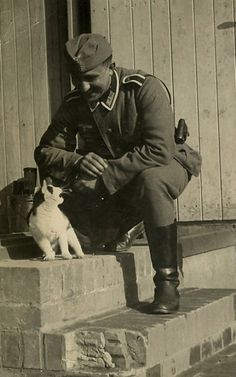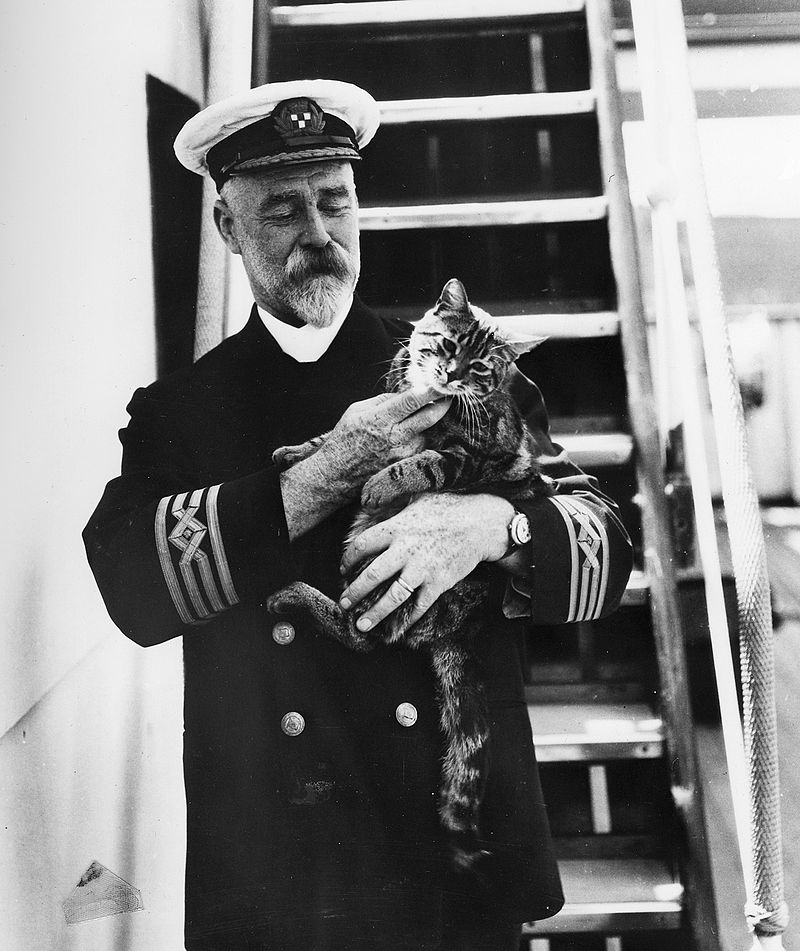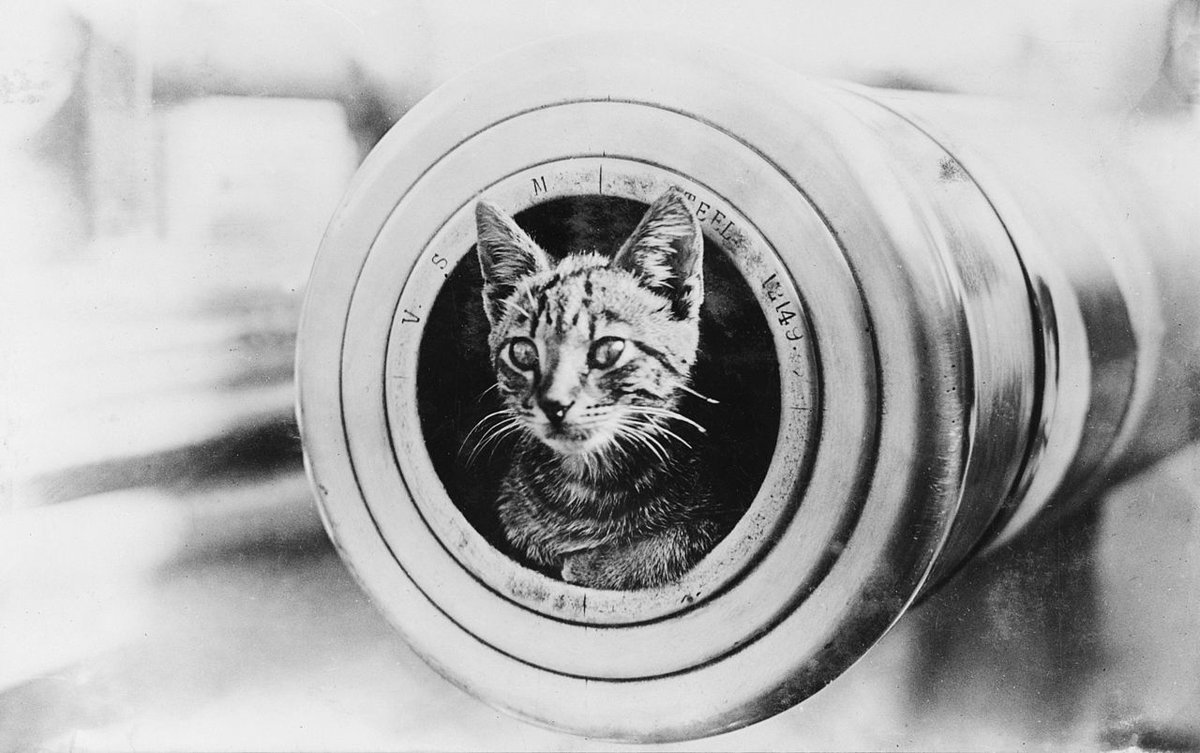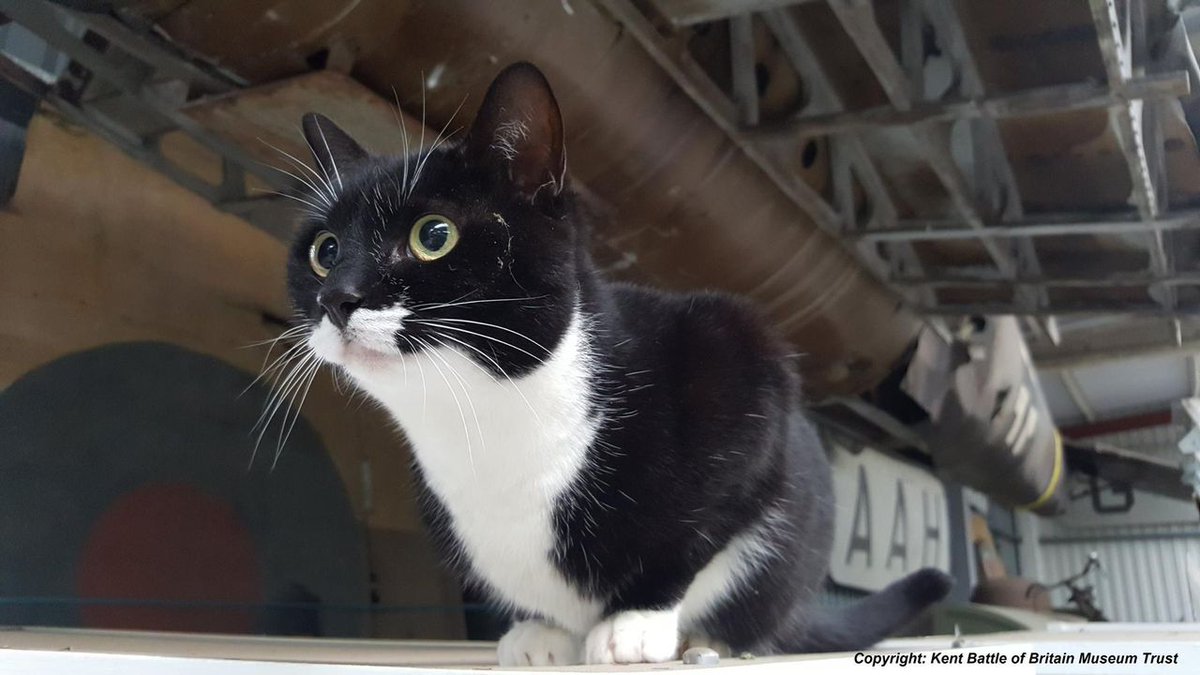It& #39;s actually more complex than this.
After Dunkirk, Britain was desperate for any help it could get. The lack of trained killers and the dearth of equipment left Britain vulnerable to invasion.
Two key groups were approached to help:
1) Canadians
2) Cats
/1 https://twitter.com/WW2TV/status/1388132074742296581">https://twitter.com/WW2TV/sta...
After Dunkirk, Britain was desperate for any help it could get. The lack of trained killers and the dearth of equipment left Britain vulnerable to invasion.
Two key groups were approached to help:
1) Canadians
2) Cats
/1 https://twitter.com/WW2TV/status/1388132074742296581">https://twitter.com/WW2TV/sta...
Canada responded immediately to the cry for help. Because of course they did. It& #39;s frikkin Canada.
That& #39;s why you get the whole talk about how, post-Dunkirk, the only fully armed battalion in the UK was Canadian.
Negotiations with the Cats, however, were trickier.
That& #39;s why you get the whole talk about how, post-Dunkirk, the only fully armed battalion in the UK was Canadian.
Negotiations with the Cats, however, were trickier.
At least from the documents that AREN& #39;T covered by the official secrets act (mostly cabinet papers, and some stuff Churchill scrawled on Port bottle labels) it seems that whilst Cats obviously rejected Nazism in all its forms, they also didn& #39;t see any of this as their problem.
The British Government& #39;s arguments that the German& #39;s disliked cats were shown to be false when the Cats (demonstrating precisely WHY the Allies needed them) easily provided photographic evidence to the contrary from France, where French Kitties had not resisted occupation.
As a result, the kitty position was largely:
1) Humans started this
2) You LITERALLY did all this 20 yrs ago already
3) Why on earth should we have to be the ones who sort out your shite here? Go ask "man& #39;s best friend" or are they too busy chasing sticks?
4) Ooh look a sunbeam
1) Humans started this
2) You LITERALLY did all this 20 yrs ago already
3) Why on earth should we have to be the ones who sort out your shite here? Go ask "man& #39;s best friend" or are they too busy chasing sticks?
4) Ooh look a sunbeam
Nor were suggestions that the U-Boat war would have a negative impact on Britain& #39;s milk supply taken seriously.
BUT...
In the end, it was the war at sea which did finally result in an Anglo-Cat agreement.
BUT...
In the end, it was the war at sea which did finally result in an Anglo-Cat agreement.
Cats already had a LONG tradition of serving in command and gunnery positions within the Royal and Commonwealth Navies
(although they were generally portrayed more as limited advisors or passengers to the press, for security and propaganda reasons)
(although they were generally portrayed more as limited advisors or passengers to the press, for security and propaganda reasons)
As a sign of continuing friendship, it was thus agreed that this service agreement would be extended to the junior services, where cats were prepared to volunteer.
The kitty thinking was that this was a sufficient enough alliance fudge to hedge their bets in case the Germans won
The kitty thinking was that this was a sufficient enough alliance fudge to hedge their bets in case the Germans won
Basically, they executed a kitty version of the Anglo Portuguese dance over the Azores, with similar consequences.
Indeed the FO archive has a whole bunch of stuff which suggests the cats might have been involved in negotiations there, too. https://twitter.com/garius/status/1352649363902894085">https://twitter.com/garius/st...
Indeed the FO archive has a whole bunch of stuff which suggests the cats might have been involved in negotiations there, too. https://twitter.com/garius/status/1352649363902894085">https://twitter.com/garius/st...
The only caveat attached was that kitties taking up command or gunnery positions under this scheme OUTSIDE the navy, should NOT be photographed.
Basically, the whole thing had to be kept relatively hush-hush.
Basically, the whole thing had to be kept relatively hush-hush.
As a result, although cats ended up serving EXTENSIVELY in tank command and gunnery positions, and indeed within the RAF, VERY little pictoral evidence of this service remains.
As with Bletchley, those that served this way knew they would remain unheralded. But did it anyway.
As with Bletchley, those that served this way knew they would remain unheralded. But did it anyway.
Unlike with Bletchley, there was no Masterman moment. Kitties don& #39;t kiss and tell and, sadly, as a result we have almost no clear historical picture of the role played by these brave kitties.
We know of nine naval kitties who served at D-Day. We don& #39;t know how many with the army
We know of nine naval kitties who served at D-Day. We don& #39;t know how many with the army
That we& #39;re finally starting to build up an idea of their impact in the RAF is only thanks to the pioneering research of Scrambles, who works over at the Kent Battle of Britain Museum ( @MuseumKent) who I know had a book in the works on this pre-COVID.

 Read on Twitter
Read on Twitter





